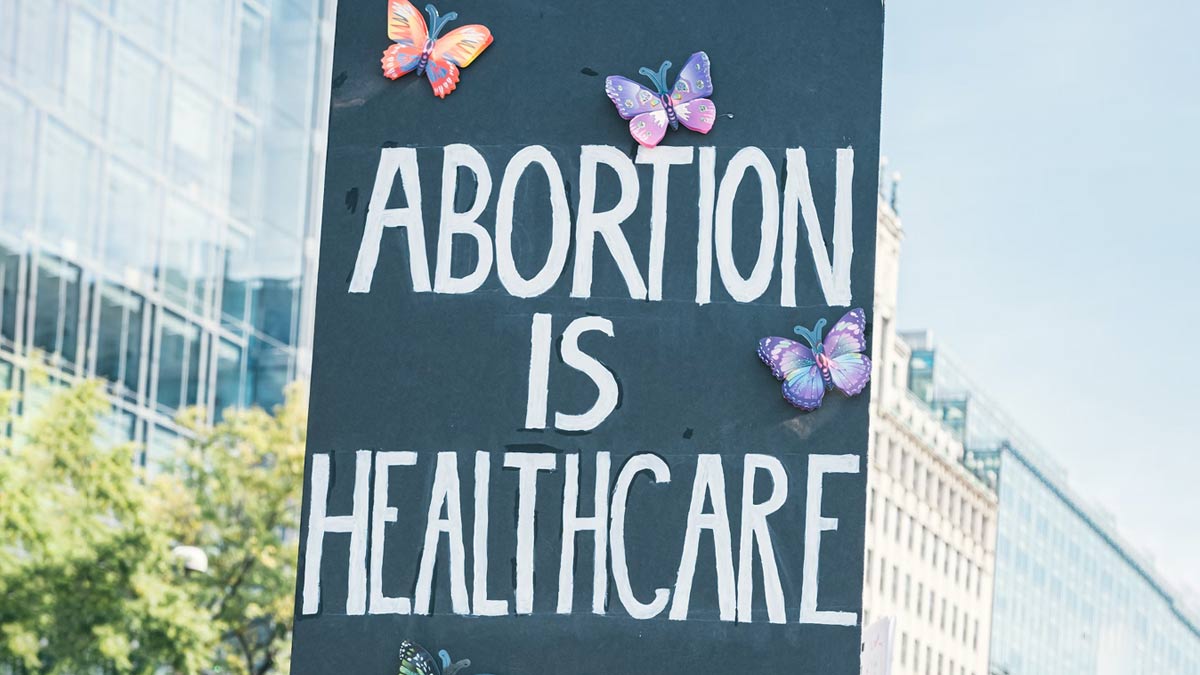
Abortion has been legal in India for over 50 years because of the Medical Termination of Pregnancy Act in 1971. A recent amendment to the act in 2021 has allowed women to seek safe abortion services due to contraceptive failure. There has been an increase in the gestation limit to 24 weeks for special categories of women and only a single opinion of a medical provider required for 20 weeks of gestation. These categories include survivors of sexual assault, minors, women whose marital status changes during an ongoing pregnancy, and those with physical and mental disabilities.
Abortion activists argue that the law could be more inclusive in its terminology by changing ‘woman’ with ‘pregnant person’, which extends the rights to not just cisgender women, but also trans people and the entire LGBTQI+ community. More so, in cases of survivors of rape or sexual assault, the gestational limit should have been eliminated as done for foetal anomalies.
However, Indian laws are more progressive compared to other countries. Still, 67% of abortions in India are unsafe, according to the United Nations Population Fund’s State of the World Population Report 2022.
The report states that eight women die because of unsafe abortions each day, making it the third most common reason for maternal mortality in India.
As defined by WHO, unsafe abortions are "a procedure for termination of a pregnancy done by an individual who does not have the necessary training or in an environment not conforming to minimal medical standards”.

Simply legalising abortion does not make sure that there is accessibility to abortion everywhere. Implementation of the law needs to be just as effective, so that it can bridge the gaps, and the court’s responsibility to ensure this is even more vital.
Moreover, marginalised groups of women like HIV-positive women, sex workers, SC and ST women, single women and minors find it more difficult to access abortions.
A report by the Centre for Law and Justice along with O.P Jindal Global University affirms the fact that growing shortages of healthcare professionals all over India, insufficient public health infrastructure and funding, poor privatisation policies, and unavailability of specialist doctors to approve critical procedures pushes pregnant people to get unsafe abortions.
Dr. Sonia Sharma, a gynaecologist and obstetrician who runs an abortion clinic in Delhi, said that most women are unaware of the legal right to abortion and don’t know that marital status is not an issue.
Don't miss:30 Million Women In USA Have Limited Or No Access To Abortion, Reports Study
Abortion is considered a taboo, which is motivated by socio-cultural, political, and economic aspects, where it is treated as a nasty deed. The moralistic view on abortion does not permit women to terminate their pregnancies as easily. One who even wishes to do so is stereotyped as having “bad character”.
“A lot of times the couple in question faces family pressure as they don’t want their social circle to know about the abortion, so they take over-the-counter Medical Termination of Pregnancy pills (MTP). They do not understand the overuse of these pills can cause bleeding and haemorrhage,” said Dr. Jagriti Varshney, a reproductive health advocate and gynaecologist.
Such stereotypes prevent women from making their own decisions. This control ensures that women cannot be individualistic and have the burden of upholding so-called societal values.
Patriarchal norms prevalent in society mean that marriage as an institution makes it compulsory for women to bear children. A woman who chooses to not embrace motherhood is vilified.
Dr. Varshney narrates how once a patient of hers was not well-educated about sex and had unprotected sexual intercourse with her husband frequently. “Her husband would subsequently make her take MTP pills after every few months to prevent pregnancy, however that caused her to have severe bleeding as she was already anaemic”.
That is not only it. The immediate repercussions of unsafe methods can be tearing of the cervix, blood poisoning, uterine perforation due to surgical instruments, and shock or seizures. The long-term effects include reproductive tract infections, infertility, increased risk of miscarriages, and premature delivery in future pregnancies.
Don't miss:New Rules Under Medical Termination of Pregnancy Act Allow Abortion Till 24 Weeks
The need for sex education programs that promote the concept of consent and not abstinence are effective in reducing unintended pregnancies. Programs that include access to contraception and provide family-planning techniques are successful.
Dr. Varshney said being literate about their rights is important to combat this problem. “A number of awareness programs are run by government clinics which should be readily available to unmarried and married people”.
Moreover, a right-based approach instead of one which is doctor-centric should be implemented by the judiciary.
Also watch this video
Herzindagi video
Our aim is to provide accurate, safe and expert verified information through our articles and social media handles. The remedies, advice and tips mentioned here are for general information only. Please consult your expert before trying any kind of health, beauty, life hacks or astrology related tips. For any feedback or complaint, contact us at [email protected].